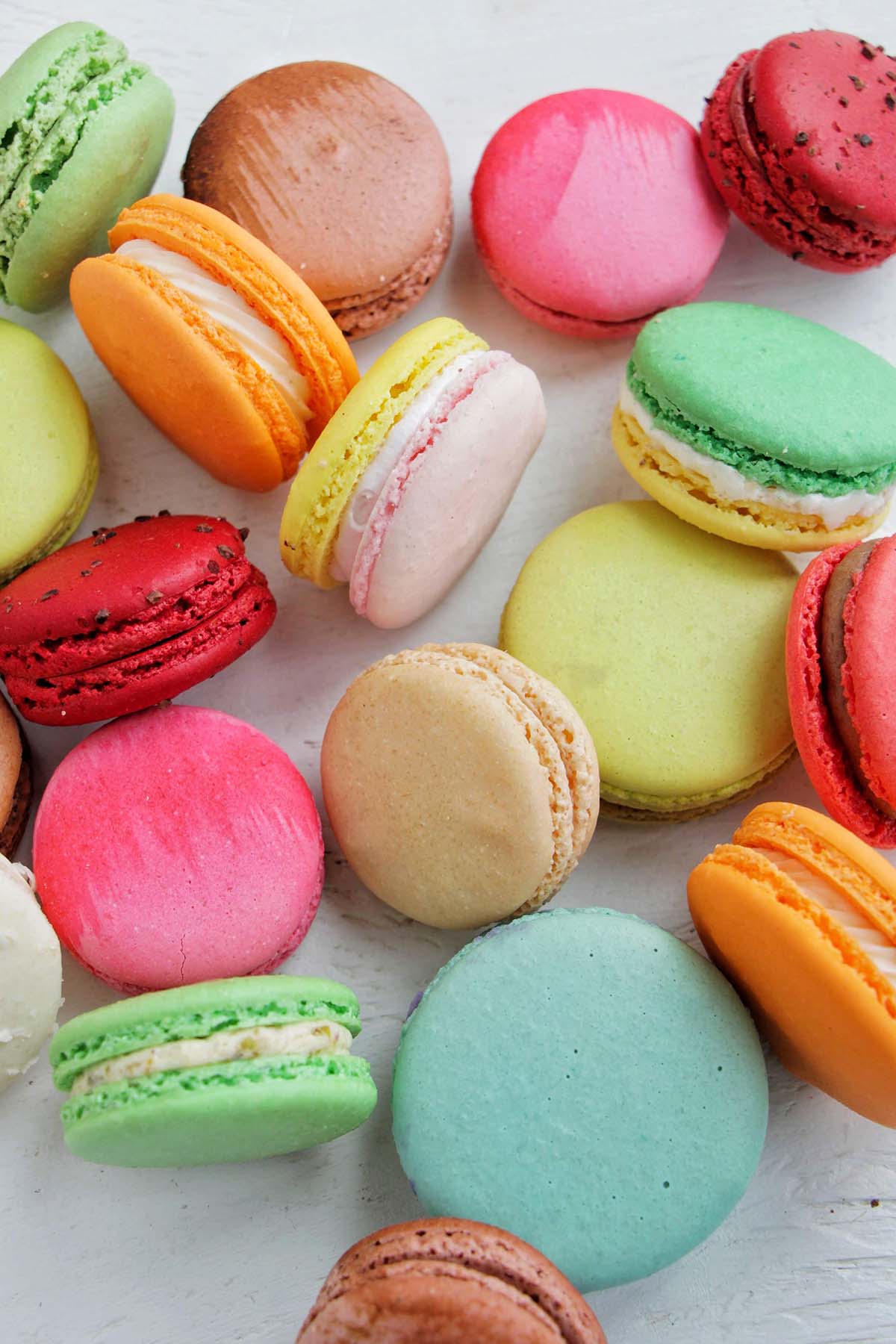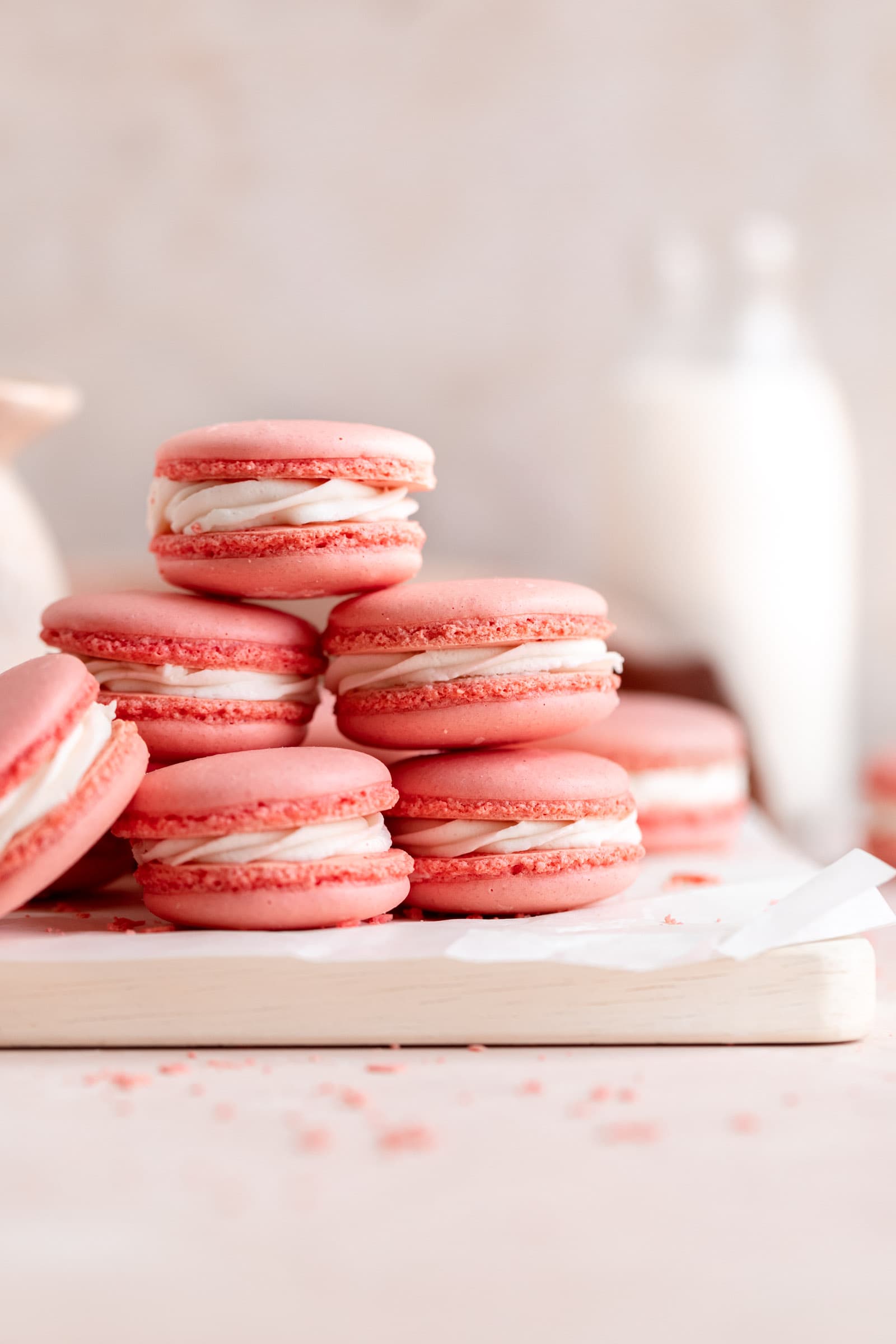Want A Macaron - The Sweet, Secretive Trend
Sometimes, a simple question or a picture can take on a life of its own, spreading far and wide across the internet. It’s almost like a secret handshake, where a few chosen words or a certain image hint at something much more playful, or perhaps, a bit cheeky. That's certainly the case with the phrase, "want a macaron," which, you know, has popped up in many corners of the online world, carrying a meaning quite different from just a craving for a sweet treat.
This kind of internet shorthand, where a seemingly innocent query hides a grown-up wink, tends to be pretty common. It’s a way people connect through shared, often humorous, understandings that might go over the heads of those not in the know. What starts as a simple visual can, in a way, blossom into a widespread inside joke, sparking smiles and, sometimes, a little bit of confusion for the uninitiated.
So, we're going to take a closer look at this particular phrase and the visual that helped it become so well-known. We’ll explore where it came from, what it actually means when people ask, "want a macaron," and how these kinds of playful expressions find their way into our daily online chats. It’s a fascinating peek into how language and pictures, you see, can get twisted into something completely new and often quite amusing.
Table of Contents
- Where Did the "Want a Macaron" Idea Begin?
- A Picture That Speaks Volumes: The Core of "Want a Macaron"
- Is "Want a Macaron" Just a Sweet Treat, or Something More?
- The Online Buzz: How "Want a Macaron" Spread
- Beyond the Meme: What Does "Want" Really Mean?
- "Want a Macaron" and the Art of Asking
- The Broader Cultural Echoes of "Want"
- Why "Want a Macaron" Continues to Amuse
Where Did the "Want a Macaron" Idea Begin?
The very first playful picture that sparked the "want a macaron" internet trend, it seems, came from an Australian artist named David The. This person, as a matter of fact, brought into being the initial visual that would later spread like wildfire across various online spots. It was a single picture, a creative spark, if you will, that set the whole thing in motion, laying the groundwork for a phrase that would soon take on a meaning far beyond its sugary surface. This early creation, you know, really captured people’s attention, setting the stage for its surprising journey through internet culture.
A Picture That Speaks Volumes: The Core of "Want a Macaron"
The core of this playful internet joke, this "want a macaron" idea, is a particular picture that became quite well-known on TikTok. It shows a person holding a serving dish filled with those colorful, round cookies. But here's the twist, the truly memorable part: the one cookie right in the middle, the central piece, is arranged in a way that’s meant to be, well, rather suggestive. It’s not just a simple sweet treat display; it’s a visual trick that hints at something quite different, something that makes you do a double-take, you know, and perhaps even chuckle a little.
This clever arrangement is what gives the picture its unique, grown-up humor. The way the cookies are placed, especially the one in the middle, makes the "want a macaron" question take on a very different flavor. It moves from being about a dessert to being a bit of a playful, even naughty, invitation. It’s this visual pun, this unexpected twist, that really makes the picture stick in your mind, creating a memorable moment that’s more than just a sweet craving.
Is "Want a Macaron" Just a Sweet Treat, or Something More?
When people ask, "want a macaron" in the context of this internet joke, the meaning is pretty much for grown-up eyes only. It’s a phrase that has a hidden, playful, and frankly, a bit risqué meaning, so just as a heads-up, it’s not something you’d typically bring up in polite company or around younger folks. The joke plays on a visual that implies something quite personal and, you know, definitely not safe for work environments. It’s a clear example of how internet culture can take innocent words and give them a completely different, more mischievous sense.
This particular kind of internet humor isn't, in fact, alone. There are similar playful expressions that follow the same pattern. For instance, the phrases "want a taco" and "want a hotdog" also carry these hidden, grown-up meanings. They all work in a similar way: taking a common food item and, through a visual cue or a shared understanding, turning it into a suggestive question. It’s a trend that highlights how online communities create their own unique ways of communicating, often with a wink and a nod to something a little more daring, you know, than what’s on the surface.
The Online Buzz: How "Want a Macaron" Spread
The "want a macaron" joke really took off on platforms like TikTok, spreading quickly from one person to another. People were sharing the picture and the phrase, creating a lot of buzz and getting many views. It was one of those things that just seemed to appear everywhere, becoming a recognizable piece of internet talk. This kind of rapid sharing, you know, is typical of how playful ideas move through online communities, grabbing attention and becoming a part of the daily conversation for many.
One person who helped make sense of this particular trend was Noah Glenn Carter. He offered an explanation of the "want a macaron" remarks that were popping up, especially on TikTok. It seems he himself was a bit unnerved by the whole thing, giving a general explanation of the trend from the perspective of a young man who appeared genuinely a bit scared by the underlying meaning. His reaction, in a way, mirrored that of many who stumbled upon the joke without knowing its hidden layer, showing just how surprising and, you know, sometimes unsettling these kinds of internet expressions can be when you first encounter them.
Beyond the Meme: What Does "Want" Really Mean?
Stepping away from the playful internet joke for a moment, it’s worth thinking about the simple word "want" itself. At its core, "want" can mean to be in a state of needing something or to be without much. It describes a feeling of lacking something important. For example, if someone is in "want," they might be without basic necessities. This meaning, you know, touches on a more serious side of the word, far removed from the lightheartedness of a sugary treat or a playful internet quip.
More commonly, though, "want" is used as a verb to express a strong wish or a desire for something. It’s about feeling a need or a longing for something, whether it’s a physical item or an experience. You might "crave" something, or "require" it, or simply "wish" for it. This sense of the word, you see, is all about personal preference and what you hope to have or do. It’s a fundamental part of how we express our wishes and hopes in everyday language, from simple desires to deeper longings.
"Want a Macaron" and the Art of Asking
When we think about how "want" is used in questions, especially in a phrase like "want a macaron," it highlights something interesting about language. While "want" means to wish or desire something, it’s typically not the word you’d pick for asking something very politely. For instance, you wouldn't usually say, "I want a glass of water, please" in a formal setting; you'd probably say, "May I have a glass of water?" This distinction, you know, shows how the internet joke uses a direct, almost blunt, form of "want" to deliver its suggestive punch, making it feel less like a polite request and more like a playful proposition.
A "want" generally refers to a wish or a desire for something that isn’t absolutely necessary for living. It’s often driven by what a person prefers, their hopes, or their aims in life. This can include anything from a craving for a specific snack to a big life goal. Unlike a basic need, a "want" is about personal preference and what brings joy or satisfaction. So, when the meme asks, "want a macaron," it’s playing on that sense of desire, but twisting it into something that’s, you know, far from a simple craving for a sweet treat.
The Broader Cultural Echoes of "Want"
Beyond its use in internet jokes and everyday conversations, the word "want" also finds its way into many other parts of our culture, like music. For example, "What I Want" is a song by American country music performer Morgan Wallen, which features Canadian pop performer Tate McRae. This tune, as a matter of fact, was put out for listeners on May 16, 2025, as the fifth single from Wallen's collection of songs. This shows how the idea of "wanting" something, whether it’s a feeling, a person, or a dream, is a common theme that artists often explore in their work. It highlights that the word "want" carries a lot of emotional weight, making it a powerful tool for expression in many different forms of art, not just in playful internet expressions, you know.
Why "Want a Macaron" Continues to Amuse
The lasting appeal of the "want a macaron" joke, and others like it, comes from their ability to be both simple and surprisingly clever. They take something ordinary, like a picture of cookies, and infuse it with a hidden meaning that connects with a shared sense of humor. This kind of playful, sometimes cheeky, internet expression tends to stick around because it’s a fun way for people to communicate something without saying it directly. It’s a bit of an inside joke that many people can get in on, making them feel part of a larger, amusing conversation, you know.
From its beginnings with an Australian artist to its widespread journey across TikTok, the "want a macaron" phrase has shown how a simple visual can become a cultural touchstone. It reminds us that language, even in its most straightforward forms, can be twisted and turned into something entirely new and often quite entertaining. It's a testament to the creativity of online communities, and how they constantly find new ways to play with words and pictures to make us smile, or, you know, perhaps raise an eyebrow in amusement.
This article has explored the origins of the "want a macaron" internet joke, detailing its visual components and its suggestive meaning. We’ve looked at how this playful expression spread widely, particularly on TikTok, and how it relates to similar online phrases. Additionally, we considered the broader definitions and uses of the word "want," moving from its literal sense of need to its role in expressing desire, and even its appearance in popular music. The discussion highlighted how simple words and images can take on complex, often humorous, meanings within online culture.

30+ Best Macaron Recipes - Homebody Eats

Easy To Bake Macarons at Monica Browning blog

Italian Macaron Recipe – Sugar Geek Show